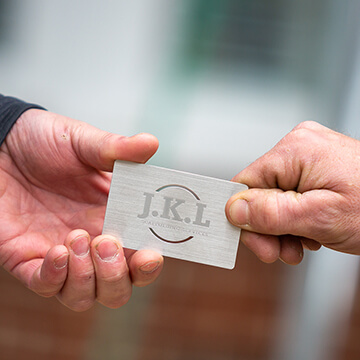When planning a construction project, especially on a commercial site, selecting the right scaffolding material can make all the difference in terms of safety, efficiency, and cost. The debate between steel vs aluminium scaffolding continues to be a hot topic for contractors, site managers, and engineers alike.
Both materials have their place in the world of commercial scaffolding, but each comes with unique benefits and limitations. Whether you need heavy-duty scaffolding for a high-rise or lightweight scaffolding for quick installation, making the right choice can impact your entire timeline and budget.
If you’re looking for tailored scaffolding solutions in Kent and surrounding areas, JKL Scaffolding Services offers reliable, safety-first support across both steel and aluminium structures. From full-service construction scaffolding to on-site consultations, we help commercial teams stay compliant and efficient.
Call us on 0800 061 4800 or email info@jklscaffolding.co.uk for a detailed discussion.
From high-rise builds to retail renovations, choosing the right scaffolding makes all the difference. Trust JKL Scaffolding Services for expert commercial scaffolding—engineered for safety, delivered with precision.
Scaffolding Material Comparison: Understanding Steel And Aluminium
Both steel scaffolding and aluminium scaffolding are widely used in the construction industry, but they serve different purposes based on the demands of your site. The choice depends on several factors, including weight, load-bearing capacity, cost, durability, and weather resistance.
Let’s explore both options in detail to see which best suits your next commercial build.
Steel Scaffolding: The Go-To For Strength And Stability
Steel has long been the preferred scaffolding material for large-scale commercial and industrial projects. Known for its superior strength, steel scaffolding is ideal when heavy-duty support is needed.
Steel Scaffolding Advantages
- High load capacity: Steel can hold significantly more weight than aluminium, making it suitable for jobs that involve heavy equipment or multiple workers at once.
- Durability: It performs well in harsh weather conditions, including strong winds and rain, without losing structural integrity.
- Stability: Steel scaffolds offer enhanced rigidity, reducing the risk of movement or vibration on site.
When To Choose Steel Scaffolding
- For multi-storey commercial construction
- When durability is a priority
- For industrial scaffolding, Kent projects
- When long-term structure use is expected
Considerations And Drawbacks
The primary downside of steel is its weight. Being significantly heavier than aluminium, it takes more effort, time, and manpower to install and dismantle. Additionally, the cost of steel scaffolding can be higher due to transportation and labour costs.
Aluminium Scaffolding: Lightweight And Versatile
For projects that demand speed and flexibility, aluminium scaffolding is a practical alternative. It is widely used for smaller-scale commercial jobs, especially when scaffolds need to be moved or adjusted frequently.
Aluminium Scaffolding Benefits
- Lightweight construction: Easier to transport, assemble, and reposition—beneficial for fast-paced or multi-location tasks.
- Corrosion-resistant: Aluminium is naturally resistant to rust, making it ideal for humid or wet environments.
- Cost-effective labour: Reduced manpower needed for installation can lead to savings in labour costs.
When To Choose Aluminium Scaffolding
- For interior or light exterior maintenance work
- When scaffolds need to be relocated frequently
- For retail, signage, or painting jobs
- For shorter-term commercial projects
However, aluminium is not the best option where load-bearing is a significant concern. Compared to steel, it lacks the same strength and may not comply with specific scaffolding safety standards for heavy-duty applications.
Commercial Scaffolding Material: Which One Is Right For Your Site?
To decide between steel scaffolding and aluminium scaffolding, you’ll need to assess the unique demands of your commercial site.
Factors To Consider
- Load requirements: Do you need to support heavy tools or multiple workers?
- Site conditions: Will the scaffold be exposed to high winds, rain, or corrosive environments?
- Time constraints: Is rapid assembly or mobility important?
- Project duration: Will the scaffolding remain in place for weeks, months, or just days?
If your job site involves high-rise construction, structural repair, or the use of heavy machinery, steel is likely the better choice. But if you’re managing a short-term project that needs flexibility, aluminium may be more efficient.
Balancing Safety And Cost In Scaffolding Solutions
Regardless of the material, safety should never be compromised. Choosing the wrong scaffolding materials can lead to compliance issues, delays, or even accidents.
Ensure your choice aligns with industry standards for scaffolding safety and consult professionals for guidance. Here’s a helpful read on scaffolding safety tips to ensure your site remains secure and compliant with legal requirements.
When considering cost, remember to factor in more than just the purchase or rental price. Labour, transport, long-term maintenance, and regulatory compliance can all impact the cost of steel scaffolding or aluminium setups.
Contact JKL Scaffolding
Expert Advice From Kent’s Scaffolding Specialists
If you’re still unsure, consult local experts who can evaluate your site conditions and project requirements. For commercial scaffolding and industrial scaffolding in Kent, JKL Scaffolding Services delivers customised solutions with a safety-first approach.
Whether you’re building new infrastructure or renovating an existing space, our team ensures every scaffold is secure, compliant, and tailored to your needs.
Conclusion: Making The Right Choice For Your Commercial Build
There’s no one-size-fits-all answer to the steel vs aluminium scaffolding debate. Your final decision should be based on a careful assessment of your site’s needs, budget, timeline, and safety standards.
- Choose steel scaffolding for its unmatched strength, longevity, and support in complex building projects.
- Opt for aluminium scaffolding when agility, ease, and cost-efficiency matter most.
Regardless of the route you choose, working with a trusted provider ensures high-quality workmanship and peace of mind. JKL Scaffolding Services is proud to support commercial clients across Kent with reliable advice and professional-grade scaffolding materials—delivered and installed with precision.
For tailored, cost-effective construction scaffolding in your area, get in touch with JKL Scaffolding Services today.


